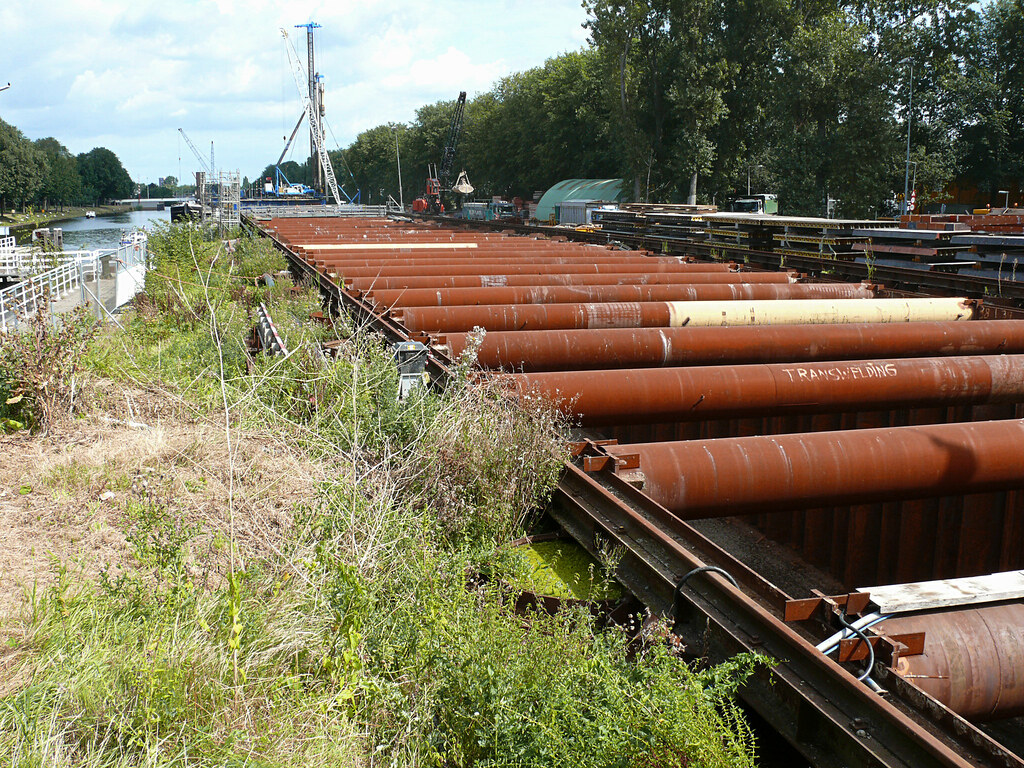What do civil engineers do?
Civil engineering has shaped the physical world as we know it, from towering skyscrapers and intricate bridges to essential infrastructure like water and sewage systems. Today, as the construction industry faces rapid advancements and unprecedented challenges, civil engineering continues to evolve as a blend of art, science, and technology.
Civil engineers work in diverse environments, including office settings and construction sites, often balancing time between both to ensure project success.
For property developers and real estate professionals, understanding the role civil engineers play is essential to planning and executing successful construction projects. This post dives into who civil engineers are, what they do, and why they are indispensable to the built environment.
Understanding the Role of Civil Engineers
Civil engineers are the backbone of construction and infrastructure projects. At their core, they are professional engineers responsible for designing, building, supervising, and maintaining various types of infrastructure. Their work spans a broad spectrum, from large infrastructure projects like highways and mass transit systems to developing the framework for city buildings.
Those who obtain a Professional Engineer (PE) license are called professional engineers (PEs) and are responsible for overseeing other engineers, approving design plans, and providing public services.
Beyond the physical structures, civil engineers play a critical role in ensuring that construction projects comply with government regulations, meet safety standards, and are economically feasible. Their responsibilities involve assessing major projects, conducting survey reports, and preparing environmental impact statements, all while working closely with construction managers and government officials.
Specializations within civil engineering include:
- Structural Engineers: Design safe and durable structures that withstand environmental and human-induced stresses.
- Transportation Engineers: Plan efficient mass transit systems and roadways to improve connectivity.
- Geotechnical Engineers: Focus on soil and foundation stability for construction sites.
- Environmental Engineers: Develop sustainable solutions for water, air, and land pollution challenges.
- Coastal Engineers: Engineer solutions for erosion, flooding, and other coastal challenges.
Whether working in state and local governments, federal agencies, or private construction firms, civil engineers ensure that projects balance creativity, safety, and sustainability.
Types of Civil Engineers
Civil engineering is a diverse field with several specializations, each playing a crucial role in the development and maintenance of infrastructure projects. Here are some of the key types of civil engineers:
- Structural Engineers: These professionals design and develop buildings, bridges, and other structures, ensuring they are safe, durable, and capable of withstanding environmental stresses. Structural engineers design frameworks that form the backbone of our cities and communities.
- Transportation Engineers: Focused on improving connectivity, transportation engineers plan, design, and operate transportation systems, including roads, highways, airports, and public transit systems. Their work ensures efficient and safe movement of people and goods.
- Geotechnical Engineers: Specializing in the behavior of earth materials, geotechnical engineers design foundations, tunnels, and other underground structures. They assess soil stability and other geotechnical factors critical to the safety and success of construction projects.
- Environmental Engineers: These engineers develop solutions to environmental challenges such as air and water pollution. They design systems for waste management, recycling, and sustainable practices, ensuring that infrastructure projects minimize their environmental impact.
- Construction Engineers: Overseeing the construction process, construction engineers ensure that projects are completed on time, within budget, and to the required quality standards. They coordinate with various stakeholders to manage resources and resolve on-site issues.
- Civil Engineering Technologists: Assisting civil engineers, these technologists play a vital role in the design, construction, and maintenance of infrastructure projects. They apply civil engineering technology to support project execution and management.
Each of these specializations contributes uniquely to the field of civil engineering, ensuring that infrastructure projects are safe, efficient, and sustainable.

The Essential Skills and Expertise of Civil Engineers
Civil engineers require a diverse skill set to manage the technical and administrative demands of their role. Here are some of the key skills that make civil engineering an indispensable profession:
Obtaining certifications in a civil engineering specialty can enable civil engineers to move into senior technical or managerial roles, further advancing their careers.
1. Technical Skills
A strong foundation in general engineering education, math skills, and computer-aided design (CAD) tools equips engineers to establish building locations or guide construction management. Expertise in engineering mechanics, hydraulic systems, and building materials enables them to innovate and implement complex designs.
2. Problem-Solving Skills
From addressing unforeseen issues on a construction site to developing solutions for structural challenges, civil engineers solve problems that others might overlook, ensuring projects proceed seamlessly.
3. Leadership and Organizational Skills
Many civil engineers direct projects, take on managerial positions, or serve in senior technical roles. Supervisory or administrative positions require leadership skills to manage diverse teams, handle project resources, and communicate effectively with stakeholders.
4. Regulatory Knowledge in Geotechnical Engineering
Civil engineers ensure that projects comply with permit applications and government regulations. This involves working closely with local governments, federal agencies, and industry experts to maintain compliance and secure approvals.
5. Creativity in Design and Innovation
Civil engineers often need creative vision to design infrastructure that not only serves its purpose but also integrates seamlessly into urban landscapes and natural environments.
Specializations such as geotechnical engineering are crucial, as they focus on soil and foundation stability, which are essential for innovative and safe infrastructure designs.
State licensure generally requires civil engineers to graduate from ABET-accredited engineering programs, pass the Fundamentals of Engineering exam to become engineer interns, and earn the title of professional engineers through experience and further qualifications.
Education and Qualifications
To embark on a career in civil engineering, aspiring professionals must meet specific educational and licensure requirements. Here’s a typical pathway to becoming a civil engineer:
- Bachelor’s Degree: A foundational step is earning a bachelor’s degree in civil engineering or a related field, such as civil engineering technology. This degree provides essential knowledge in engineering principles, mathematics, and project management.
- ABET Accreditation: Graduating from an ABET-accredited engineering program is highly recommended. Accreditation ensures that the program meets high standards of quality and rigor, preparing students for professional practice.
- Professional Engineer (PE) License: To become a licensed professional engineer, candidates must pass the Fundamentals of Engineering (FE) exam, gain several years of work experience under a licensed PE, and then pass the Principles and Practice of Engineering (PE) exam. This licensure is crucial for career advancement and is often required for supervisory roles.
- Advanced Degrees: Pursuing a master’s degree or Ph.D. in civil engineering can be beneficial for those seeking advanced positions or specialization in a particular field. Higher education opens doors to research, teaching, and leadership roles within the industry.
By following this educational pathway, individuals can build a solid foundation for a successful career in civil engineering.
Career Path and Advancement
Civil engineers have numerous opportunities for career advancement, often progressing to supervisory or administrative positions. Here are some potential career paths:
- Project Manager: As project managers, civil engineers oversee the planning, design, and construction of infrastructure projects. They coordinate with various stakeholders, manage budgets, and ensure that projects meet deadlines and quality standards.
- Senior Engineer: Senior engineers lead teams of engineers, providing technical guidance and expertise. They play a critical role in complex projects, ensuring that engineering solutions are innovative and effective.
- Department Head: In government agencies or private companies, civil engineers can advance to department head positions. They manage entire departments, overseeing multiple projects and ensuring that all engineering activities align with organizational goals.
- Executive: At the executive level, civil engineers hold high-level positions, making strategic decisions and overseeing operations. They influence the direction of their organizations and contribute to long-term planning and development.
Advancing to these supervisory or administrative positions requires a combination of technical expertise, leadership skills, and professional experience. Civil engineers who excel in these areas can achieve significant career growth and make substantial contributions to their field.
The Impact of Civil Engineers on Infrastructure and Construction Projects
A civil engineer’s contributions go far beyond laying plans on paper—they ensure the success of construction projects on multiple levels. For instance:
- Economic Feasibility: Civil engineers assess a project’s economic feasibility to ensure cost-efficient solutions. Their expertise helps in creating accurate cost estimates, selecting sustainable building materials, and managing construction budgets effectively.
- Infrastructure Development: Civil engineers design public projects like bridges, dams, highways, and sewage systems—integral components of any growing community. They establish reliable transportation links, manage water resources, and shape industrial hubs.
- Sustainability: Environmental considerations are at the forefront of modern civil engineering. Engineers develop solutions to reduce environmental footprints, manage waste, and safeguard future generations through eco-friendly designs.
- Safety and Compliance: To protect citizens, civil engineers ensure structures are safe and meet strict regulatory codes. From temporary structures to mass transit systems, everything must adhere to guidelines protecting public health, safety, and welfare.
This multifaceted work optimizes functionality, reinforces sustainability, and supports the long-term vision of property developers.
Job Outlook and Salary
The job outlook for civil engineers is promising, reflecting the ongoing need for infrastructure development and maintenance. According to the Bureau of Labor Statistics, employment for civil engineers is projected to grow by 6% from 2023 to 2033, aligning with the average growth rate for all occupations.
In terms of compensation, the median annual salary for civil engineers was $95,890 in May 2023. However, salaries can vary based on factors such as location, experience, and industry. For instance, civil engineers working in metropolitan areas or for the federal government may earn higher salaries compared to those in rural areas or smaller firms.
Overall, the demand for skilled civil engineers remains strong, driven by the need for sustainable infrastructure solutions and the continuous evolution of civil engineering technology. This positive job outlook and competitive salary make civil engineering an attractive career choice for aspiring professionals.
The Future of Civil Engineering and Technological Advancements
Technological advancements in civil engineering are transformative, reshaping how professionals assess major projects and deliver results. AI, drone technology, and predictive analytics empower project managers with actionable insights while software like BIM (Building Information Modeling) improves planning accuracy.
Emerging civil engineering technologies include:
- Smart Infrastructure: Systems integrating IoT devices for real-time monitoring and optimization of infrastructure projects.
- Geospatial Data Analysis: Advanced drone-based surveying for greater accuracy in construction sites.
- Sustainable Construction Techniques: Green materials and renewable energy sources driving eco-conscious solutions.
The future of civil engineering lies in helping property developers adopt innovative methods that save costs while ensuring safety, efficiency, and sustainability.
A Case Study of Success: South Coast Improvement Company
South Coast Improvement Company, a leader in construction management and design-build projects, exemplifies how civil engineering integrates into high-quality construction. Known for their professionalism, seamless project handling, and focus on client needs, they’re a prime example of how pre-construction planning and collaboration with engineering teams lead to exceptional results.
Their adaptability to challenges—whether modernizing outdated infrastructure or complying with stringent environmental regulations—demonstrates why civil engineering services are indispensable to developers.
By working with trusted industry leaders like South Coast Improvement, property developers can achieve remarkable outcomes in high-stakes construction projects.

Why Civil Engineers Are Crucial to the Built Environment | What Do Civil Engineers Do?
From designing resilient bridges to ensuring reliable water and sewage systems, civil engineers guide the development of critical infrastructure that underpins society. For property developers, partnering with skilled civil engineers means turning ambitious ideas into successful, tangible outcomes.
If you’re a developer looking to transform your vision into reality, explore the range of engineering services available to help your infrastructure projects thrive. With expertise in both technology and sustainability, the right professionals can make all the difference.
Take the first step today—connect with engineering specialists to discover how their expertise can benefit your next project!
Resources
Here are some valuable resources to help you explore civil engineering services and their impact on development projects:
- American Society of Civil Engineers (ASCE) – Discover industry standards, research, and professional guidance for civil engineering practices.
- National Council of Examiners for Engineering and Surveying (NCEES) – Learn about licensing requirements and resources for engineering professionals.
- Civil Engineering Magazine – Stay updated with the latest trends, innovations, and case studies in civil engineering.
- South Coast Improvement Company – Explore specialized construction and civil engineering services for property developers.
- U.S. Green Building Council (USGBC) – Gain insight into sustainable building practices and LEED certification processes.
- Engineering News-Record (ENR) – Access comprehensive news, analysis, and project reporting for the construction and engineering industries.
- Institution of Civil Engineers (ICE) – Explore resources, professional development opportunities, and global industry insights for civil engineers.
- ConstructConnect – Find construction project leads, tools, and software solutions to streamline project planning and execution.
- Civil + Structural Engineer Media – Delve into articles, interviews, and resources geared toward civil and structural engineering professionals.
- American Concrete Institute (ACI) – Learn about concrete standards, certification programs, and cutting-edge research in concrete technology.
These links provide a starting point to deepen your understanding of civil engineering’s role in successful development projects and connect you with trusted industry resources.
View Our Work
Aspen Dental
Partnering with The Aspen Group on the construction of a new Aspen Dental facility that’s functional & welcoming for patients & staff alike. South Coast Improvement Company was awarded the construction of a new Aspen Dental facility in Killingly, CT. The...
Springhouse Senior Living – HumanGood
Designed to enhance comfort & functionality. South Coast Improvement company was hired by HumanGood for an interior and exterior renovation at Springhouse Senior Living. Our skilled teamtransformed the 2nd through 5th floor common areas into brighter, more...







